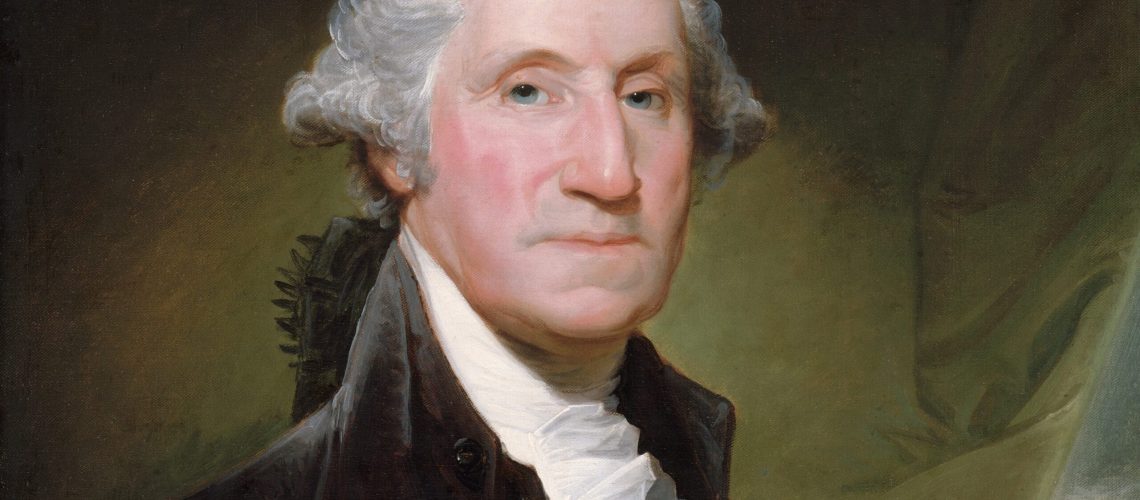He was born to loving parents on February 22, 1732 but 11 years later, George Washington found himself fatherless and unable to afford the upper middle class lifestyle of his peers. In addition to losing his father, several siblings died at young ages including his older brother who had been his surrogate father. Contracting smallpox while caring for his ailing brother wasn’t enough to kill the future leader and in fact inoculated him against the disease that would kill many of his soldiers in the Revolutionary War.
Out of such adversity came Washington’s greatness but it wasn’t automatic. He had strict rules that he set for himself, published today as Washington’s Rules of Civility & Decent Behavior, a collection of 110 rules that he wrote out by hand. Some are not relevant today, like eating outside or not, but most are truly timeless. The first rule states: “Every Action done in Company, ought to be with Some Sign of Respect, to those that are Present.” Subsequent rules cover aspects of speech, manners and behavior. Number 4 says not to hum or tap your fingers or feet in the presence of others. Yes, people in those days did that too. Number 44 helped Washington be a great leader, it says not to blame someone who tries hard but does not succeed. The Revolutionary War was marked by numerous setbacks, if the General had strongly admonished his troops for every failure, he would have lost his soldiers’ morale through all the hardship they endured. His ability to recruit an army willing to fight under such harsh circumstances might be attributable to rule number 56 which states: “Associate yourself with Men of good Quality if you Esteem your own Reputation; for ‘is better to be alone than in bad Company.” Of course with most classics, a modern reading broadens “Men” to include everyone. Some of Washington’s rules address avoiding gossip and minding your own business. Regarding business, he implores to only take assignments that you can fulfill, and then fulfill them well. The rules end with number 109: “Let your recreations be manful not sinful;” and finally number 110: “Labor to keep alive in your breast that little spark of celestial fire called conscience.”
Setting these guardrails formed the foundation for George Washington to become the great leader we all know, but he was not without failure. Fighting for King George in the French and Indian War, 22 year old Lieutenant Colonel Washington met early military disaster at the fork of the Ohio River, today’s Pittsburgh Pennsylvania, when Shawnee warriors and their French sponsors ambushed his British forces by firing muskets from the trees. He rehabilitated his reputation by building the professionalism of the Virginia Regiment and retired from active duty after victory in the war was won. Knowledge of the frontier helped him become a successful land speculator before King George voided all land rights west of the Appalachian Mountains. That may have motivated him to accept the Command of the Continental Army of the American Revolution by a unanimous vote of the Continental Congress. Many of his early supporters doubted him after some strategic errors, but his soldiers held fast to the only leader of a revolution that would ever defeat a colonial power in the history of the world.
When the Treaty of Paris ended the Revolutionary War in the autumn of 1783, someone told King George that he heard Washington was going to retire. The King could not imagine giving up so much power as Washington had earned. He famously said “If he does that, he will be the greatest man in the world.” Washington did exactly that and earned even more respect from his countrymen who elected him as their first President a few years later. Again, it was an office which he could have held for life but that would have been counter to the whole purpose of the Revolution, so he set another example and retired after two terms in office, asking his countrymen to view his faults with “indulgence.” It is difficult to appreciate how revolutionary Washington was. Up to that point in world history, leaders had not relinquished power voluntarily, it only happened at death, naturally or otherwise. The lessons of Washington’s life are legion, and they begin with the 110 rules he chose to live by.
Celebrate George Washington!
#GeorgeWashington


4 thoughts on “Washington’s Rules”
I found this really interesting. I am a Scoutmaster and plan on using some of this in my “Scoutmaster minutes” to motivate and inspire youth in my troop.
Thank you Scoutmaster WP!
Thanks for sharing, should be a must read in schools today.
Thank you Chris, I agree.
Comments are closed.